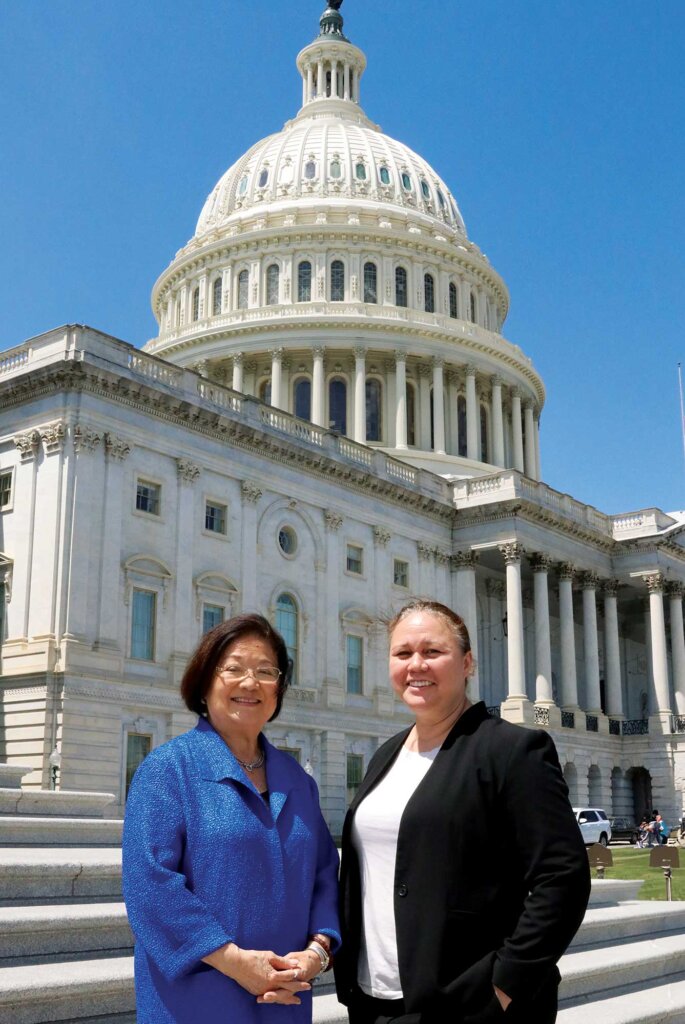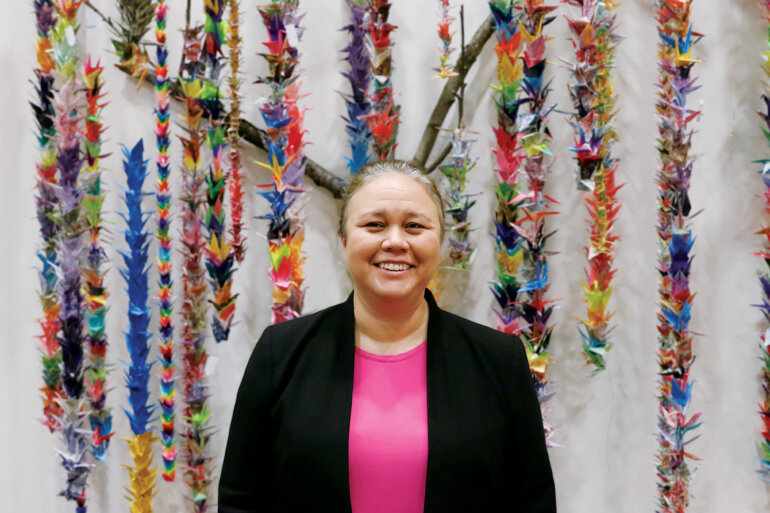For the People: Becoming the First Native Hawaiian Female Chief of Staff in the U.S. Senate
Since her graduation from William S. Richardson School of Law at U.H. Mānoa in 2007, Coti Haia ’99 has been blazing new trails and shattering glass ceilings as a deputy prosecuting attorney, Senate staffer and most recently, as chief of staff for U.S. Senator Mazie K. Hirono (D-HI). Haia is the first Native Hawaiian female chief of staff to ever serve in the United States Senate.

Even as a young child, Haia felt a calling to serve the Native Hawaiian community. As a 12-year old sixth grader in 1993, she recalls watching thousands of people march to ‘Iolani Palace to commemorate the 100th anniversary of the overthrow of the Hawaiian Kingdom. As she processed the trauma and resolve she was seeing in her Native Hawaiian community, she asked herself what she could do to help.
Born and raised in Mililani and Waimānalo, Haia spent summers on Lānai learning Hawaiian history from an auntie who was also the island’s only sixth grade teacher. She earned her bachelor’s degree from Gonzaga University and returned home to Hawai‘i intent on attending law school. She received her law degree in the midst of an economic recession and found her first legal job as a deputy prosecutor for the city and county of Honolulu. “Not the trajectory I was expecting,” Haia says. “I certainly wasn’t expecting to practice criminal law, but it was interesting and really hard, too.”
Not long after, a phone call from a former law school professor presented an opportunity for a one-year fellowship in former Senator Daniel Inouye’s office in Washington, D.C. The position meant moving to the East Coast and a city she’d never been to. “It was a lot. There was no point in my life where I thought to myself I would be in D.C., living in D.C., and working in the Senate,” Haia says.
Almost 15 years later though, Haia remains in the nation’s capitol after serving on the staffs of both Senator Inouye and Senator Hirono’s offices, as well as D.C. Bureau Chief of the Office of Hawaiian Affairs’ D.C. bureau. She returned to Senator Hirono’s office as deputy chief of staff in 2018 and was elevated to the office’s lead role in April 2022.
“We are contacted every day by Hawai‘i residents and constituents who travel all the way to D.C. to meet with us. We raise the issues that they are concerned about and want us to do something about,” she notes. The delegation often looks to find parity between the Native Hawaiian community and the American Indian and Alaska Native communities as it relates to their relationship with the federal government. “We do a lot of that work. But you don’t get to just work on one issue when you’re in D.C, so I’ve handled transportation, housing, a large swath of the judiciary portfolio and banking.”
Despite being younger than most of her fellow chiefs of staff, as well as a woman of color, Haia is undaunted. “I don’t necessarily feel intimidated. If I have a question, I’m going to ask it,” she says. “I think the work we do is very important, and I take that extremely seriously. But I don’t take myself too seriously. If you talk to me on any given day, I am most likely to try to make you smile or laugh so we can both enjoy our conversation.”
Haia credits Punahou for giving her the confidence, without arrogance, to achieve anything she sets her mind to. “That’s one thing I always tell our interns. You see that thing? You can do it. Don’t sell yourself short.”

